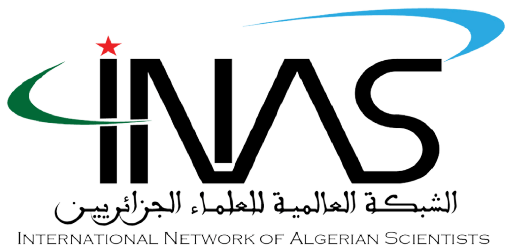No doubt that COVID-19 has affected all sides of our life. One of its downsides is that the global economy has been badly hit. Meanwhile, one of its positives worldwide is that the environment, for example, has improved due to the reduction of harmful emissions. In Algeria, a positive aspect concerns the many higher education institutions who turned to virtual leaning methods for the first time, as distance learning was the only resource left to save the academic year. This is an excellent outcome given the fact that this modern way of education has been neglected up to recently. However, it is important to note that this move has been rushed and needs to be put in context.
In normal conditions, modern teaching relies on an integrated approach combining the web-based features of Virtual Learning Environment (VLE) platforms and traditional face-to-face interaction between the students and the facilitators. The two parts are complementary and aim to deliver a full experience of the students learning. In Algeria, very few higher education institutions were using virtual learning tools. In these few institutions, well before the Covid-19 pandemic, staff and students used VLE and hence when the education institutions had to close because of the pandemic, these institutions were ready to progress the academic year using distance learning mode. But, in Algeria, ready higher institutions were very few and the vast majority had to quickly adapt to the new situation and still face difficulties.
It uses a dictionary of over 200 Latin words, combined with a the handful of generate Lorem Ipsum which looks more than ready that that ready dummy reasonable.
Objectives
The E-Learning project of INAS provides space for sharing knowledge and experiences to facilitate the digital transition of the higher education sector to use modern learning methods. The ultimate aim is to advance higher education in Algeria to align with world-class learning institutions. Academics in Algeria are key in leading this change.
Opportunity
High caliber and distinguished Academics, Scientists, Doctors and Engineers active both inside and outside Algeria; High level of awareness; Large national and private companies for graduate training and internships as well as sources of research projects; Algeria occupies a strategic position with regard to European countries as well as the US & Canada with sizeable successful Algerian diaspora, etc…
Deliverables
First, through this project, urgent support to higher education institutions staff and students is being provided through the provision of Google Classroom professional licenses, for example. Webinars were also organized to share knowledge and experiences. For longer term, a project plan and interim reviews will be carried out along the project life to facilitate a smooth digital transformation. This includes an analysis of the current learning methods, cultural barriers and lack of facilities. The project will deal with both technical and philosophical aspects of e-learning, and propose solutions to accelerate the transition.

Solution Development
1. Problem Definition: Many higher education institutions turned to virtual leaning methods for the first time, as distance learning was the only resource left to save the academic year. However, it is important to note that this move has been rushed. Indeed, many staff and students never used it before. In normal conditions, modern teaching relies on an integrated approach combining the web-based features of Virtual Learning Environment (VLE) platforms and traditional face-to-face interaction between the students and the facilitators. However, during the pandemic, higher education institutions moved directly to distance learning, which is not aligned to the modern teaching methods.
2. Gap Analysis: To understand the current situation of the higher education sector, it is important to review the current teaching methods, the available facilities and the readiness of academics and students to adopt the virtual learning approach. To provide practical solutions, it is also critical to understand the challenges facing the higher education sector to allow the best approach for improving the situation.
3. Opportunity: Undoubtedly, higher education is one of the most powerful investments for the future of a nation. Taking the opportunity of modern learning methods combined with the high aspirations of the academic community would surely advance the academic standards in Algeria. But to achieve this, it is necessary to clearly understand the challenges. In Algeria, those are not insignificant and may be summarized in:
a. Lack of development strategy in the higher education sector
b. The absence of mechanisms for the real activation of infrastructure installations, such as laboratories and technological platforms
c. The absence of mechanisms to activate communication between the university and its economic and social environment
d. Under exploitation of human and material resources
e. The fragility of the industry sector
The E-Learning project will endeavor to:
Framework
Continue providing a framework for sharing ideas and experiences
Google Classroom
Continue the provision of Google Classroom to university academics
Pedagogical Assisstance
Assist in technical and pedagogical aspects to facilitate the digital transformation
Assessment
Continually assess the progress, identify challenges and propose potential solutions
